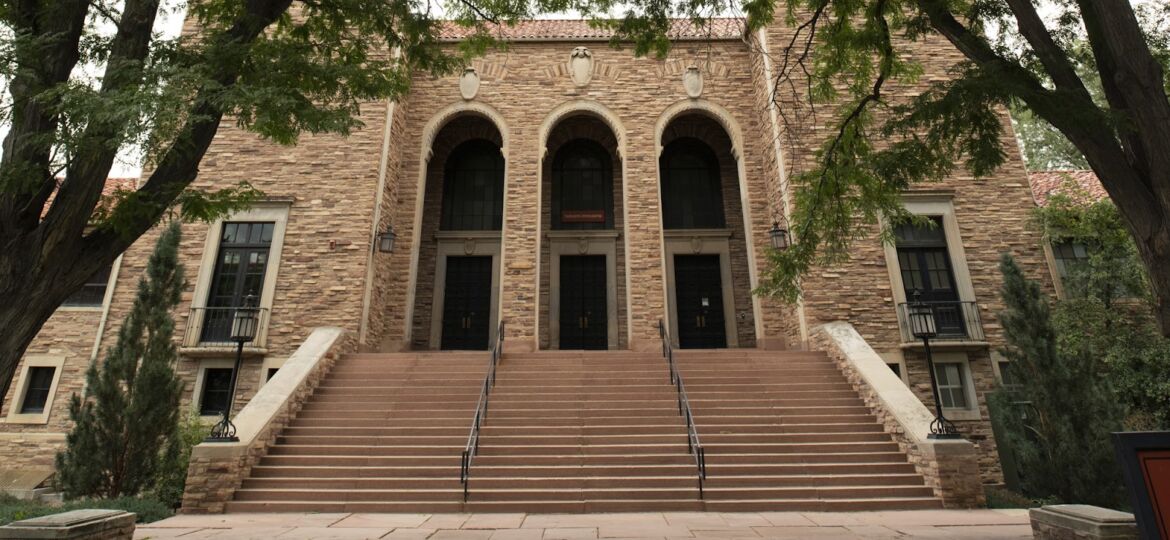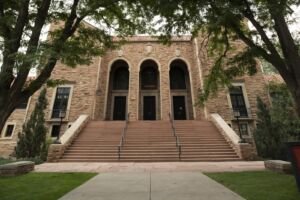
CUSG Legislative Council reviews legislation to amend student fee regulations.

The University of Colorado Student Government Legislative Council met Thursday, Feb. 2 to discuss multiple pieces of legislation submitted to Council. Two pieces of legislation, A Bill to Amend the Student Fee Regulations (SFRs) and A Bill to Propose Constitutional Amendments for the Spring 2023 CUSG Election were discussed for the first time.
A Bill to Amend the Student Fee Regulations (SFRs) was introduced, authored, and sponsored by doctoral student and Graduate School Senator Jake Carias. The bill is seen largely as the first step in improving the connection between CUSG cost centers, their staff and students, he said.
Student fees, as per the Bursar’s Office are, “Mandatory fees [that] support student services, student activities, technology, capital construction, and need-based financial aid. Among these areas of concern is CUSG’s Student Activity Fee, in which the Council can mold as it sees fit.
The bill deals largely with the implementation of “updated and clarified,” language in multiple sections of the SFRs, as well as attempting to improve the standard of financial assistance in which Center for Student Involvement selective organizations receive. One amendment recognizes, “Graduate and Professional Student Organizations,” making way for traditional Center for Student Involvement (CSI) funding to flow into previously unrecognized, department-funded graduate and professional developmental pathways.
The bill adds two new sections under the “Academic Activities” SFR, in the form of “Graduate Assistantships Within CUSG Cost Centers” and “Academic Activities That Enhance the Student Experience,” bringing a higher share of student fee funds to the graduate sector of CU.
The amendment exists to, “integrat[e] the graduate student experience into CUSG as an institution and provide additional opportunities for both enhancing the graduate student connection to CUSG cost centers and providing new opportunities for cost centers to recruit the talent and expertise of our existing graduate student population.”
While Carias says there is still work left to improve the experiences of graduate and professional students, the legislation is a progressive step forward for everyone under the CUSG umbrella.
“This will be a win-win for all students, staff, and programs under the CUSG umbrella,” he said.
The final clause of the bill deals with the administration of student fee funds regarding CUSG Elections, Political Campaigns and Advocacy.
The bill exacts changes to the CUSG Election process, including providing equal funding to all interested parties to run Representative-at-Large and Student Body President elections, as well as CUSG ballot initiatives.
The change allows for candidates within the CUSG Election Code to receive Student Activity Fee monies as allocated in the annual budgeting process, located in the Election Commission budget line of the CUSG Proper budget.
According to Carias, the average student pays around 87 cents annually to support CUSG elections.
“I want students to have a say in what CUSG does and feel like they can impact the direction of CU Boulder. Investing in our election system and providing financial support to candidates, even small amounts for things like sidewalk chalk and flyers will improve representation within Council and the Executive branch. We want competitive elections. We want to hear everyone’s ideas. We want the best ideas to win elections and lead the buffs through CUSG,” he said.
Bill 98 LCB 02 remains pending legislation following further committee and Legislative review.
The Bold will post additional updates as they happen.

